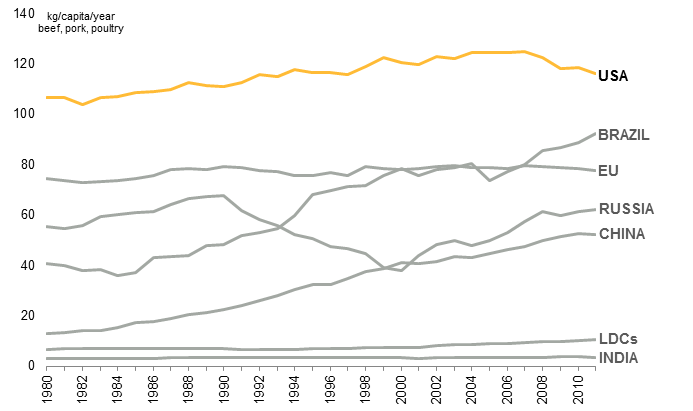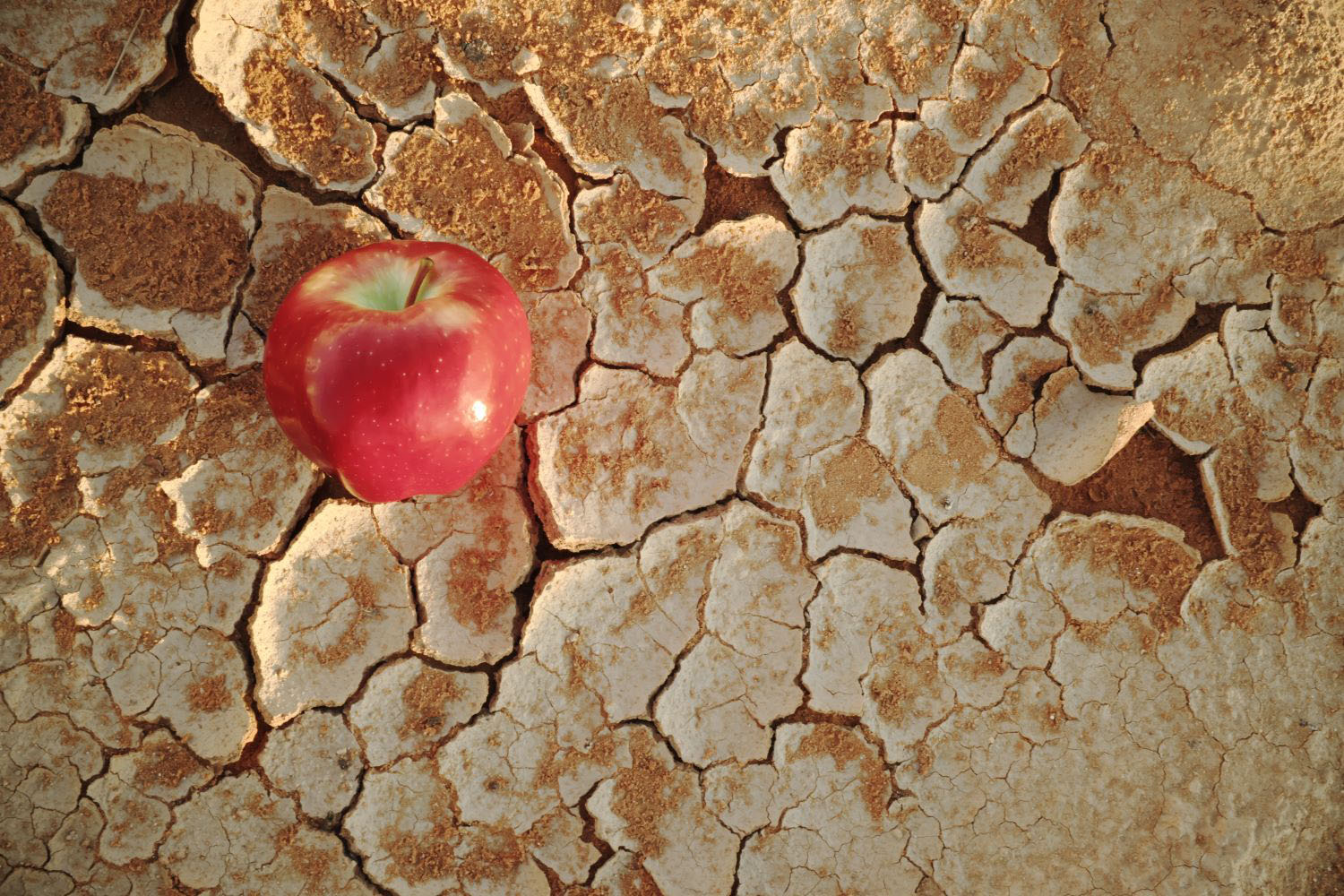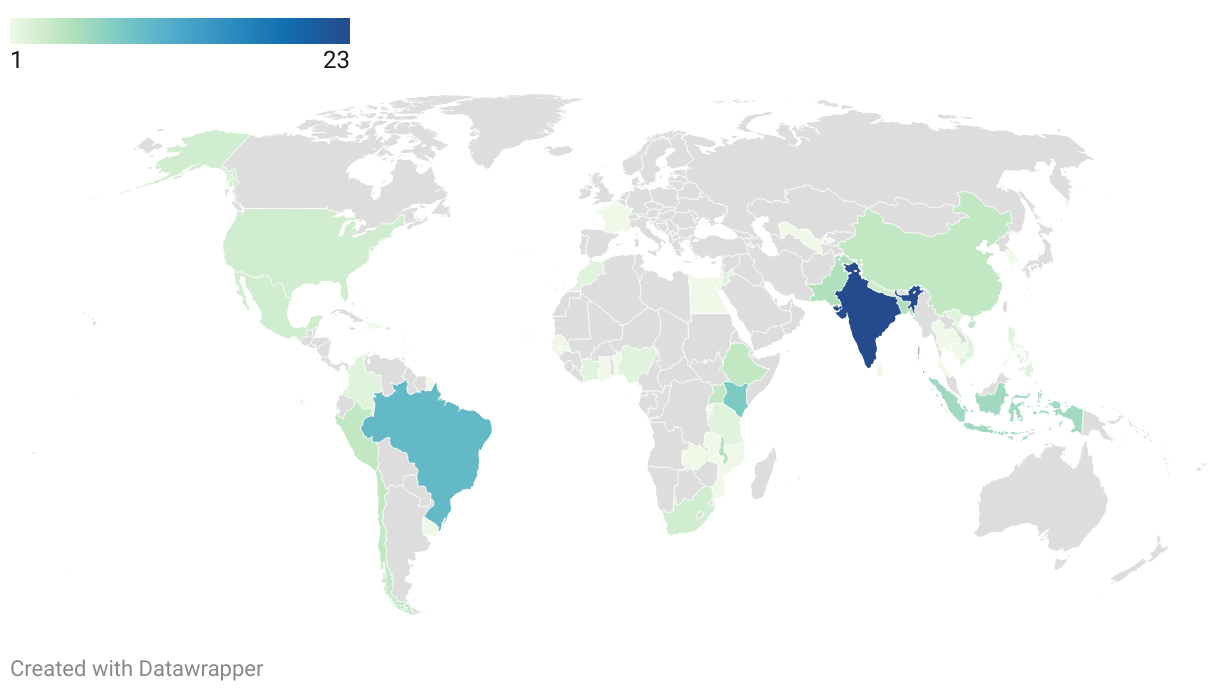The US Dietary Guidelines Advisory Committee is catching flack for recommending that Americans consider the environmental consequences of eating so many burgers. Pointing to climate change and other environmental effects of meat production, the panel suggested Americans contemplate the broader implications when choosing what to eat. Suffice it to say, the meat industry and its supporters in Congress are not happy.
But seriously folks, Americans eat a lot of meat:
Source: UN Food and Agricultural Organization.
And, as the panel pointed out, the negative consequences aren’t limited to those who choose to be carnivores and they aren’t contained within US borders.
In addition to the local water and air pollution generated by large feeding operations with thousands of animals crammed into small spaces, meat production contributes to global public bads. Climate change is a big one, but there are also growing concerns about the role of livestock production in accelerating the emergence of antibiotic resistance. Most farm animals in the United States receive antibiotics at some point in their life, often mixed in their food or water to promote growth or prevent, not treat, disease (look for my new paper on this next month).
And it is developing countries that will pay much of the cost. Research suggests that low-income countries will be hit hardest by climate change. Spreading resistance to older, cheaper antibiotics also imposes disproportionate costs on low-income countries and particularly poor children in them, who suffer and die more often from infectious diseases.
Let me confess that I like the occasional burger as much as anyone. The panel isn’t suggesting that everyone go vegetarian. But most of us (at least in the United States) could afford to eat a little less meat. If considering the impact on others—today and in the future—helps motivate us, what’s the problem?
CGD blog posts reflect the views of the authors, drawing on prior research and experience in their areas of expertise.
CGD is a nonpartisan, independent organization and does not take institutional positions.






